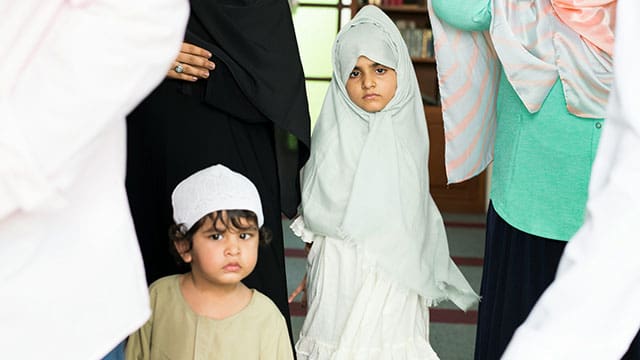There’s a blatant double standard when it comes to addressing racism against Arabs, and it’s time we confront it head-on

For interview requests, click here
I can blend easily into mainstream society. I don’t have a dark complexion, I speak English without an accent, and my name has been anglicized. As a result, I have been largely sheltered from anti-Arab racism. That is, until I wear a keffiyeh, advocate for the respect of international humanitarian law, or otherwise reveal my ethnicity.
Anti-Arab racism is so normalized that we often don’t recognize it for what it is. In referencing the recent pager explosions killing dozens of Lebanese and horrendously maiming thousands more, United States Senator John Fetterman said, “I love it.” At a hearing involving an Arab American activist, Senator John Kennedy instructed her to “Hide your head in a bag.”
Jewish-American scholar Noam Chomsky points out, “Anti-Arab racism you’re allowed to advertise. You see it in films and books and attitudes. It’s just not even hidden …. Nobody will come out and say ‘I’m an anti-Arab racist,’ but it’s everywhere and every Muslim or Arab in the country knows it.” We certainly do.
 Photo courtesy Curated Lifestyle |
| Recommended |
| Canada’s legal history refutes systemic racism claims
|
| Why almost everyone is wrong about racism
|
| Asking “Where are you from?” is not inherently racist
|
The portrayal of Arabs in Western media paints Arabs as dangerous or backward. The constant images of war and terrorism in the region have contributed to a broad generalization, leading many to view all Arabs through the lens of violence and extremism.
This type of dehumanization is nothing new. Ever since Europeans began writing about West Asia, orientalist tropes have served to distort the identity of Arabs. Other racialized groups are similarly stereotyped. Indigenous North Americans have been depicted as “savages,” and African Americans have been subjected to dehumanizing portrayals in cinema ever since The Birth of a Nation was released in 1915. Arabs, too, have long been cast as villains, whether as terrorists in action films or as backward characters in stories like Disney’s Aladdin, where the fictional Arab city is described as “barbaric.”
Growing up, I often asked myself, “Why do the bad guys always look like me?” Whether it was watching films like True Lies or countless others, the negative portrayal of Arabs was clear. Even today, I struggle to think of an American movie where an Arab character is portrayed in a positive light. These stereotypes persist and are deeply ingrained in popular culture, influencing how the public perceives Arabs.
The consequences of these portrayals are real. In the media and in daily life, Arabs are often reduced to a single narrative: that of the violent, extremist “other.” This persistent dehumanization contributes to the violence and discrimination that Arabs face, whether it’s through verbal abuse, discriminatory policies, or even physical violence. It also allows the blatant slaughter of Arab populations, as we are seeing in Palestine and Lebanon, to be minimized or ignored in Western discourse.
Public discourse changes, however, when marginalized communities take control of their own stories. Arabs are starting to do this, with outlets like Al Jazeera offering alternative narratives to the ones typically presented in Western media. Social media has also played a crucial role, allowing Palestinians, for example, to share their experiences directly with the world, shifting public perception and challenging mainstream narratives. When future generations study this period in history, the story will be told through the lens of a 25-year-old Palestinian woman who begins every reel by stating, “It’s Bisan from Gaza, and I’m still alive.”
This column also presents an effort to push back against the racist narratives that dehumanize Arabs and to demand recognition of our shared humanity. It’s time to stop normalizing the violence and discrimination against Arabs and all marginalized people.
True peace can only come when we recognize and honour each other’s humanity, and that begins by not only telling our stories but also listening to our neighbours with compassion.
Gerry Chidiac specializes in languages and genocide studies and works with at-risk students. He received an award from the Vancouver Holocaust Education Centre for excellence in teaching about the Holocaust.
Explore more on Racism, Anti-semitism
The opinions expressed by our columnists and contributors are theirs alone and do not inherently or expressly reflect the views of our publication.
Troy Media
Troy Media is an editorial content provider to media outlets and its own hosted community news outlets across Canada.

Gerry, why don’t you publish on Substack.
I love your writing, and always look for it. (Yes, I am a redneck Albertan) I would even support you financially as I always find what you have to say of value.
Gerry, why don’t you publish on Substack.
I love your writing, and always look for it. (Yes, I am a redneck Albertan) I would even support you financially as I always find what you have to say of value.
Both in the past and present, “anti-Arab racism” pales into insignificance in both quantity and quality compared to antisemitism.